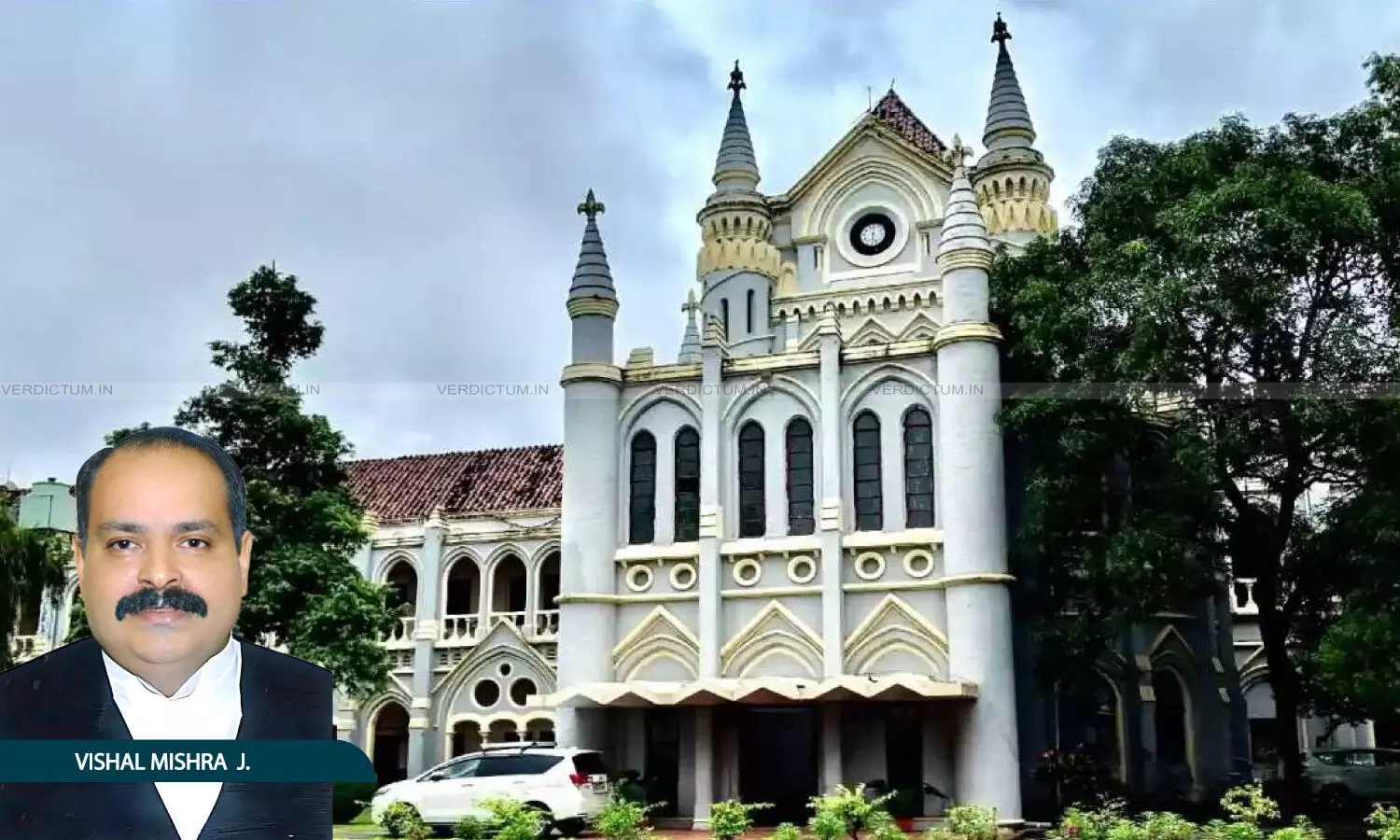
Justice Vishal Mishra, Madhya Pradesh High Court
Right To Education Can’t Be Curtailed By Imposing Age Limit Condition: Rajasthan High Court Orders Provisional Admission Of 11-Yr-Old Student To Class 9
 |
|The Rajasthan High Court was considering a Petition challenging the order passed by the Regional Officer of the Central Board of Secondary Education.
The Rajasthan High Court has ordered the CBSE Board as well as a School to provide provisional admission to a bright 11-year-old student in Class 9. The High Court also observed that the right to education cannot be curtailed by imposing a condition regarding age limit.
The High Court was considering a Petition challenging the order passed by the Regional Officer of the Central Board of Secondary Education whereby the request of the petitioner seeking special permission for registration in Class 9 was rejected twice on various grounds.
The Single Bench of Justice Vishal Mishra held, “Article 21 of the Constitution of India provides Right to Education. Right to Education cannot be curtailed by imposing a condition regarding age limit. There are several instances which point out that if an underage child can perform exceptionally well and his understanding level is on a higher side, then the exceptional qualities of such student/candidates cannot be suppressed or overlooked merely on the ground of he being underage.”
Factual Background
The Petitioner is a minor and is represented through his mother. His date of birth is March 19, 2014. He has been a bright student but when the petitioner reached Class IXth, his registration was not done by the authorities citing age issue and the petitioner was asked to either amend the date of birth in the Transfer Certificate or to obtain TC from the school. The petitioner's mother made several representations but the same was rejected by the respondent Authorities by passing the impugned order. The reason assigned by the authorities for rejection was the norms that provide for particular age seeking admission in Class IXth. As the petitioner had not satisfied the requirement of the age limit as determined by the State/Union Territory Government, therefore, the application was rejected. Aggrieved thereby, the petitioner approached the High Court.
Reasoning
The Bench found that the petitioner passed out his Class VIII examination in Academic Session 2023-2024 with flying colours and the academic report card did not reflect any negative marking regarding the petition. The petitioner applied for registration in Class IX. However, the same was rejected considering Clause 4.1 of the National Education Policy, 2020.
Reference was made to clause 4.1 which states that the curricular and pedagogical structure of school education will be reconfigured to make it responsive and relevant to the developmental needs and interests of learners at different stages of their development, corresponding to the age ranges of 3-8, 8-11, 11-14, and 14-18 years, respectively. As per the clause, the curricular and pedagogical structure and the curricular framework for school education has to be guided by a 5+3+3+4 design, consisting of the Foundational Stage (in two parts, that is, 3 years of Anganwadi/pre-school + 2 years in primary school in Grades 1-2; both together covering ages 3-8), Preparatory Stage (Grades 3-5, covering ages 8-11), Middle Stage (Grades 6-8, covering ages 11-14), and Secondary Stage (Grades 9-12 in two phases, i.e., 9 and 10 in the first and 11 and 12 in the second, covering ages 14-18).
The Bench made it clear that Clause 4.1 of the National Education Policy, 2020, does not provide that the said clause of the policy is mandatory. “However, the said clause is inserted in the interest of the student, looking to the developmental needs and interests of the student at large. However, it does not speak out regarding the extraordinary student who are having some exceptional qualities and capabilities. They cannot be simply debarred on the basis of Clause 4.1 of the National Education Policy, 2020.”
Coming to the facts of the case, the Bench noticed that the Academic Session had already commenced and classes were going on. “Clause 4.1 of the National Education Policy, 2020 is not mandatory in nature. It has been formulated looking to the fact that the age limit has been prescribed looking to the overall development of the child/student. However, it does not speak of what is to be done in case when the student is exceptionally brilliant and is able to understand the pros and cons”, it said.
Thus, allowing the petition, the Bench directed the respondents/CBSE Board as well as the respondent Institution to provide provisional admission in Class 9 in the Institution. “The petitioner is directed to appear before the Medical Board of three Experts including the Psychiatrist and a Counsellor to evaluate the IQ level of the petitioner, who shall give the report regarding IQ level of the petitioner to the Principal of the Institution within a period of 15 days from the date of appearance of the petitioner before the Medical Board and the said report shall be forwarded by the Principal of the Institution to the Chairman of the CBSE Board who shall take into consideration the said IQ test report while deciding the representation of the petitioner”, the Bench ordered.
Cause Title: Aarav Singh v. Union of India (Neutral Citation: 2025:MPHC-JBP:39576)
Appearance
Petitioner: Advocate Hitendra Kumar Golhani
Respondent: Panel Lawyer Arnav Tiwari, Advocates Rajesh Maindiretta, Aditya Awasthi